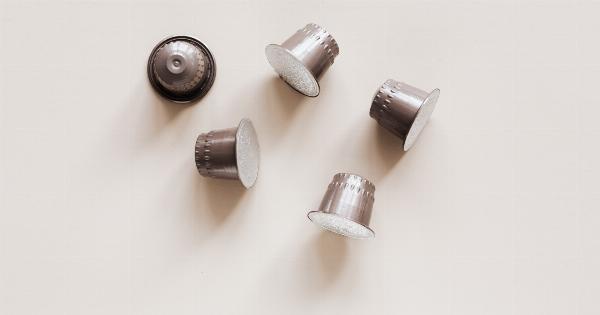Espresso capsules have become very popular in recent years due to their convenience and ease of use. With just a push of a button, you can enjoy a perfectly brewed espresso in the comfort of your home or office.
However, there has been concern about the potential risk of cancer from consuming coffee, which has led to questions about the safety of espresso capsules.
What are Espresso Capsules?
Espresso capsules are pre-packaged, single-serving coffee pods that are used in espresso machines. They contain a measured amount of ground coffee that is tightly packed into a small capsule.
When inserted into the machine, hot water is forced through the capsule at high pressure, extracting the coffee and creating a small, concentrated shot of espresso.
The Link Between Coffee and Cancer
There has been ongoing research into the potential link between coffee consumption and cancer.
Studies have shown mixed results, with some suggesting that coffee may have protective effects against certain types of cancer, while others suggest that it may increase the risk of cancer.
One of the main concerns with coffee is the presence of a chemical compound called acrylamide. Acrylamide is formed when certain foods, including coffee beans, are heated to high temperatures.
It is a known carcinogen and has been found to cause cancer in laboratory animals.
However, the amount of acrylamide in coffee is relatively low, and studies have not shown a clear link between coffee consumption and an increased risk of cancer in humans.
In fact, some studies have suggested that coffee may have protective effects against liver, colon, and breast cancer.
The Risks of Espresso Capsules
While coffee itself may not increase the risk of cancer, there are concerns about the potential risks associated with using espresso capsules. The main concern is the use of aluminum in the manufacture of the capsules.
Most espresso capsules are made from a combination of plastic and aluminum. The aluminum is used to create a barrier that keeps the coffee fresh and prevents the plastic from breaking down.
However, there have been questions about the safety of using aluminum in food packaging.
The Potential Health Risks of Aluminum
Aluminum is a common element that is found naturally in the environment. It is also used in many products, including food packaging, cookware, and personal care products.
While small amounts of aluminum are considered safe, high levels of exposure can be harmful to health.
One of the main concerns with aluminum is its potential link to Alzheimer’s disease. Some studies have suggested that high levels of aluminum may increase the risk of developing Alzheimer’s disease, although the link is not yet clear.
There are also concerns about the potential link between aluminum and breast cancer. Some studies have suggested that aluminum-based antiperspirants may increase the risk of breast cancer, although the evidence is not conclusive.
The Safety of Espresso Capsules
Despite concerns about the use of aluminum in espresso capsules, there is currently no evidence to suggest that they pose a significant risk to health.
The European Food Safety Authority (EFSA) has conducted a review of the safety of aluminum in food packaging and concluded that the amounts used in espresso capsules are safe for human consumption.
However, some people may choose to avoid using aluminum-based espresso capsules as a precautionary measure. There are alternative options available, such as compostable or biodegradable coffee capsules that do not contain aluminum.
Conclusion
Espresso capsules are a convenient and popular way to enjoy an espresso at home or in the office.
While there are concerns about the potential risk of cancer from consuming coffee, studies have not shown a clear link between coffee consumption and an increased risk of cancer in humans. The use of aluminum in espresso capsules is also considered safe by food safety authorities. However, some people may choose to avoid using aluminum-based capsules as a precautionary measure and opt for alternative options.































